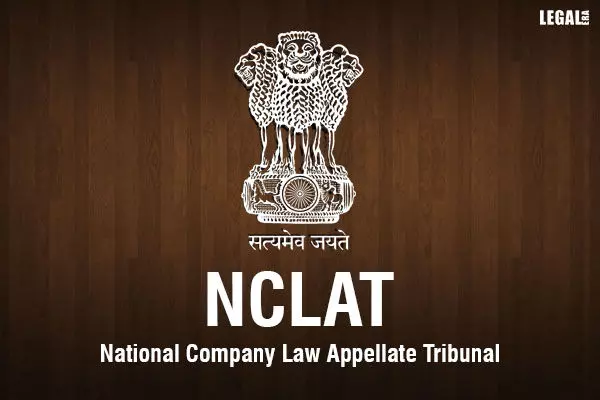- Home
- News
- Articles+
- Aerospace
- Agriculture
- Alternate Dispute Resolution
- Banking and Finance
- Bankruptcy
- Book Review
- Bribery & Corruption
- Commercial Litigation
- Competition Law
- Conference Reports
- Consumer Products
- Contract
- Corporate Governance
- Corporate Law
- Covid-19
- Cryptocurrency
- Cybersecurity
- Data Protection
- Defence
- Digital Economy
- E-commerce
- Employment Law
- Energy and Natural Resources
- Entertainment and Sports Law
- Environmental Law
- FDI
- Food and Beverage
- Health Care
- IBC Diaries
- Insurance Law
- Intellectual Property
- International Law
- Know the Law
- Labour Laws
- Litigation
- Litigation Funding
- Manufacturing
- Mergers & Acquisitions
- NFTs
- Privacy
- Private Equity
- Project Finance
- Real Estate
- Risk and Compliance
- Technology Media and Telecom
- Tributes
- Zoom In
- Take On Board
- In Focus
- Law & Policy and Regulation
- IP & Tech Era
- Viewpoint
- Arbitration & Mediation
- Tax
- Student Corner
- AI
- ESG
- Gaming
- Inclusion & Diversity
- Law Firms
- In-House
- Rankings
- E-Magazine
- Legal Era TV
- Events
- News
- Articles
- Aerospace
- Agriculture
- Alternate Dispute Resolution
- Banking and Finance
- Bankruptcy
- Book Review
- Bribery & Corruption
- Commercial Litigation
- Competition Law
- Conference Reports
- Consumer Products
- Contract
- Corporate Governance
- Corporate Law
- Covid-19
- Cryptocurrency
- Cybersecurity
- Data Protection
- Defence
- Digital Economy
- E-commerce
- Employment Law
- Energy and Natural Resources
- Entertainment and Sports Law
- Environmental Law
- FDI
- Food and Beverage
- Health Care
- IBC Diaries
- Insurance Law
- Intellectual Property
- International Law
- Know the Law
- Labour Laws
- Litigation
- Litigation Funding
- Manufacturing
- Mergers & Acquisitions
- NFTs
- Privacy
- Private Equity
- Project Finance
- Real Estate
- Risk and Compliance
- Technology Media and Telecom
- Tributes
- Zoom In
- Take On Board
- In Focus
- Law & Policy and Regulation
- IP & Tech Era
- Viewpoint
- Arbitration & Mediation
- Tax
- Student Corner
- AI
- ESG
- Gaming
- Inclusion & Diversity
- Law Firms
- In-House
- Rankings
- E-Magazine
- Legal Era TV
- Events
The doctrine of Res Judicata applies to IBC proceedings: NCLAT
The bench comprised of Justice Ashok Bhushan (Chairperson), Justice M. Satyanarayana Murthy (Judicial Member) and Barun Mitra (Technical Member)
The Principal Bench of NCLAT in a recent case held that the doctrine of Res Judicata applies to proceedings under the IBC and challenge to the findings in incidental or collateral proceedings amounts to an abuse of process of the Court.
The appeals were filed against the order of the NCLT by the ex-Director of the Corporate Debtor company, Golden Tobacco Ltd. And Oval Investment Pvt. Ltd., claiming to be a shareholder, admitting the application u/s 7 of the IBC, 2016 filed by the Financial Creditor, Arrow Engineering Limited.
Issues-
The NCLAT framed the following issues-
• Whether the Appellants in both the appeals are competent to challenge the order passed by the Adjudicating Authority in IA No. 830/NCLT/AHM/2021 in CP(IB) No. 268/NCLT/AHM/09/2020 and Company Appeal (AT)(Insolvency) No. 699 of 2022 and Company Appeal (AT)(Insolvency) No. 812 of 2022 when the findings recorded by this Appellate Tribunal in Company Appeal(AT)(Insolvency) No. 183 of 2021 attained finality in view of the judgment passed in Civil Appeal No. 7715 of 2021 by the Hon'ble Apex Court?
• Whether the order passed by the Adjudicating Authority suffers from any illegality or irregularity warranting interference of this Appellate Tribunal while exercising power under Section 61 of IBC. If so, whether the common order passed by the Adjudicating Authority in IA No. 830/NCLT/AHM/2021 in CP(IB) No. 268/NCLT/AHM/ 09/2020 is liable to be set aside?
Decision Of The NCLAT
The Bench relied on the decision of the Supreme Court in Neelama Srivastava v. State of UP & Ors., Rudra Kumar Sain and Ors. V. Union of India & Ors. And Union of India v. Maj. S.P. Sharma and held that-
"In view of the principle laid down in the above judgements, the principle of resjudicata, though a part of CPC, it would be applicable to the proceeding of this Tribunal and IBC. Only to prevent the abuse of process of law and give a finality to any proceeding, or orders, and to avoid an endless litigation to frustrate the very object of enacting IBC, the claim of appellants is liable to be rejected."
It further held that-
"Indeed, a judgment obtained by playing fraud on the Tribunal or judgment or order passed without inherent jurisdiction is nonest in the eye of law and the same can be challenged in a collateral or incidental proceeding, but it was not the case of the Appellants in these appeals. Hence in any collateral or incidental proceeding, the judgment cannot be agitated which attained finality. If such course is permitted it would amount to exercise of power of review of its own judgment or sitting over the judgment in appeal against its own order or judgment which is impermissible under law."




